By targeting the interaction between the cannabinoid CB1 and serotonin 5HT2A receptors (CB1R-5HT2AR), DRT-101 reduces the addictive properties of both recreational and medical cannabis while also mitigating cannabinoid-linked cognitive impairment.
This breakthrough offers significant progress in CUD treatment, especially for young people struggling to quit. Also, for patients using medical cannabis, it provides a promising solution to avoid addiction and memory impairment.

DRT-101 has been designed and optimized for oral administration, improving ease of use and enhancing patient compliance.
DRT-101, composed entirely of D-amino acids, is resistant to proteases, ensuring stability and long-lasting efficacy.
Upon repeated administration, DRT-101 does not stimulate antibody production, reducing the risk of adverse immune responses.
DRT-101 is able to cross the blood-brain barrier, a crucial feature for reaching the target and achieving CNS effects.
DRT-101 effectively disrupts the CB1R-5HT2AR heterodimer formation in both in vitro and in vivo assays.
In animal studies, DRT-101 prevents memory impairment associated with both acute and chronic cannabinoid exposure, while preserving the beneficial analgesic effects of cannabinoids.
In mouse models of cannabinoid self-administration, DRT-101 effectively prevents the development of addiction criteria used to define CUD.
Dr. Aiguader, 88
Barcelona Biomedical Research Park
08003 Barcelona (Spain)
info@disrupttherapeutics.com